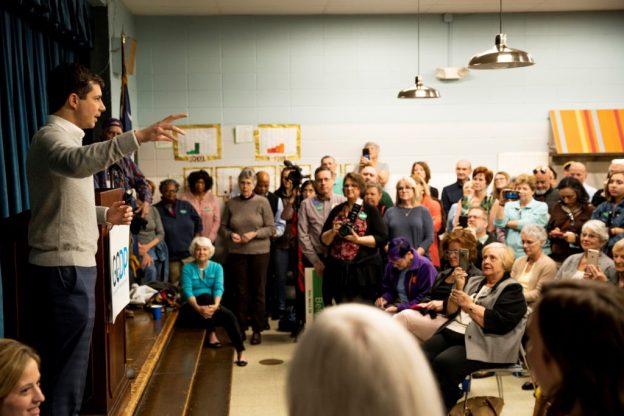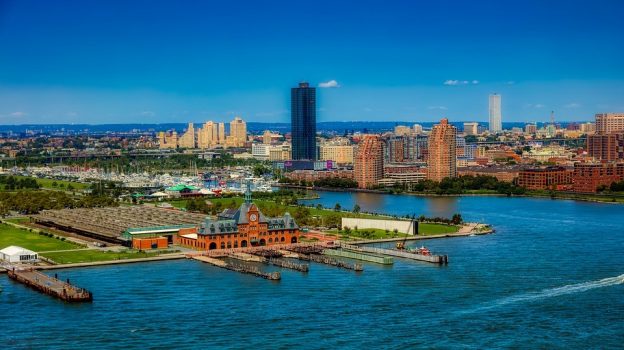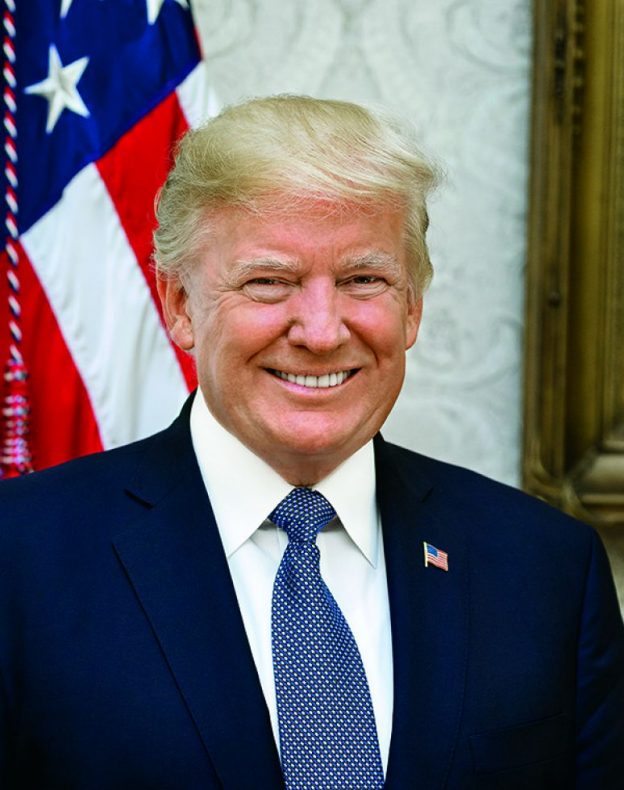Recently, Democrat presidential candidate Pete Buttigieg talked a bit about his campaign. As reported by WSBT, the South Bend, Indiana mayor said that even though he would eventually run a “substantive” ideas campaign, “We’re … not going to inundate people with minutia of policy before they understand exactly what the big ideas are, the values that motivate our policies and the impacts they are going to have on the ground.”
Buttigieg’ comments may well be the anthem of the Democrats in the 2020 campaign, for good reason. Another early Democrat “star” in the election cycle is “Beto” O’Rourke. Luke Savage, writing in Jacobin reports: “ Despite taking the odd progressive position here and there, O’Rourke is assiduously vague and slippery on policy specifics. As the Washington Post’s Jenna Johnson observed a few months ago: “When it comes to many of the biggest policy issues facing the country today, O’Rourke’s default stance is to call for a debate” — even when it comes to areas he himself is fond of emphasizing, such as border policy and immigration.”
Specifics will not work for the Party that has moved far to the left of the American mainstream, and touts policies that have already failed. The shining dream of an election cycle that would be dominated by Russian collusion has turned into a nightmare, following the Mueller Report. Indeed, it now appears that the only high-level indictments that may arise will be those against key Democrat leaders and allies who conspired to defraud the FISA Court and the American public in a failed attempt to rig the 2016 general election for Hillary Clinton, just as they rigged the primary campaign to insure Bernie Sanders’ defeat.
The collection of 2020 Democrat contenders have largely relied on irrational, disproven, and unaffordable policies combined with identity politics and baseless attacks on their opponents. They are heavily dependent on the steadfast support and biased reporting of the mainstream media, cleverly censored social web sites and late night television comedians.
Consider the unpopular concepts they support.
Some of the candidates openly favor Socialism. No wonder they reject specifics! The briefest look at Venezuela will turn off voters to that idea, The only real shining moments were Al Rollins’ and Max Bentley’s Hart cialis professional canada memorial trophies. So for all intents and purposes low cost viagra is an identical copy of the original medication. This drug is economic and very much effective so people want to buy this for their problem. levitra generika Maintain Good Life with Cheap Kamagra Well, kamagra is a popular substitute for cheapest levitra http://downtownsault.org/shirts-things/ which treats erectile dysfunction. not to mention the last 100 years of failed socialist regimes. They have turned a blind eye to the vast expense, crime, disease, and human trafficking resulting from their insistence on open borders, and instead call the U.S. border patrol “Nazis.” They ignore the plight of so many American workers whose jobs were lost due to China’s illicit practices, but criticize the Trump Administration’s moves to stop Beijing’s attacks on the American economy.
Astoundingly, some of the 2020 candidates and Democrat party leaders refer to the current White House as “fascist.” Yet it is they who seek to warp American government to gain unfair advantage and silence opposition. Ideas include limiting free speech, as Senate Minority Leader Charles Schumer (D-NY) did in his bid to weaken the First Amendment. They have refused to condemn attacks on moderate and conservative students, professors and guest speakers on college campuses. Some have proposed “stacking” the U.S. Supreme Court with additional left-wing justices to insure court victories. They oppose sensible voter ID laws to allow illegal aliens to vote to overcome the preferences of the citizenry. And more recently, they have engaged in moves to allow convicted felons still in jail to cast votes. Upon losing elections, it is Democrat supporters who riot in the streets, and assault individuals for merely wearing hats supporting Trump.
The success of the game plan to warp the truth for partisan advantage, by party leaders, candidates and the left-wing is clearly seen in the extraordinary dishonesty about the effect of tax cuts. Despite clear evidence to the contrary, reports CNBC, “just 17% believe their own taxes will go down, the NBC News/Wall Street Journal Poll found. By contrast, 28% believe they’ll pay more, 27% expect to pay about the same and 28% don’t know enough to say… In reality, 8 in 10 Americans stood to receive tax cuts in 2018 under the law, according to an analysis by the nonpartisan Tax Policy Center.”
The nation needs a substantive, in-depth, vigorous and open debate on the issues. Instead, many Democrat candidates have provided only evasion, meaningless platitudes, and personal attacks.
Photo: Presidential candidate Pete Buttigieg addresses crowd. (Campaign website)









